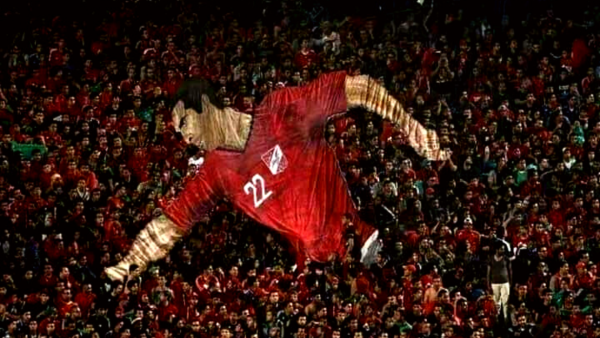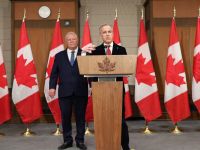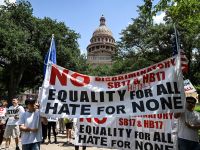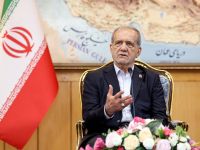With the growing discussion over the LGBTQ+ community's representation in the sports world, remarks made on TV by former Egyptian footballer Mohamed Aboutrika in relevance to the matter have sparked strong reactions on social media.
The former forward of both the Egyptian national team and Al Ahly Sporting Club, who was able to achieve massive popularity during the 2000s until his retirement in 2013, led an attack on the LGBTQ+ during a discussion over pride campaigns venues in recent years.
You are not alone we are all with you #we_support_abotreka#كلنا_ابو_تريكه pic.twitter.com/GqaarbdhGz
— AHMED ELNEMR (@A7medEssam999) December 1, 2021
Being a football analyst at the Doha-based beIN Sports, Mohamed Aboutrika expressed his discontent with the growing presence of LGBTQ+ symbols in football events, saying that "all religions fight homosexuality and warn about it," saying it "can not be defended as part of human rights."
Moreover, Aboutrika suggested that beIN Sports network considers skipping broadcasting the moments that precede games "to avoid showing LGBTQ+ symbols" when airing football games, stressing that it is his personal suggestion that it "is not coordinated with the channel."
Do you really support the LGBT community ?
We all know that it is just a tool to achieve the political and financial interests of everyone who claims to support this group that is deviant from human nature.#All_support_for_Abu_Trika— Youssef Shaaban (@You_Sh10) December 2, 2021
Aboutrika's remarks triggered numerous discussions on social media, with many conservative voices showing support for his views, while others attacked him for "demonizing the LGBTQ+ community," especially since it is already facing social rejection in the Arab World.
I had to stop watching half way through, his words made me feel sick. We live in the 21 century, people are free to be whoever they want and need our support.
— B W (@brett_walton) December 1, 2021
The discussion, which took place following a Premier League game, urged the English organizers to reach out to beIN Sports in protest of his statements. beIN, in turn, expressed "strong disapproval" of Aboutrika’s comments.
Meanwhile, The Supreme Committee for Delivery & Legacy for the Qatar 2022 World Cup stressed that Mohamed Aboutrika is amongst its members and that there are no plans to change that.
Mohamed Aboutrika who is highly popular in Egypt has been living in exile in Qatar after Egyptian authorities classified him on terror lists for allegedly supporting the Muslim Brotherhood until 2013.







